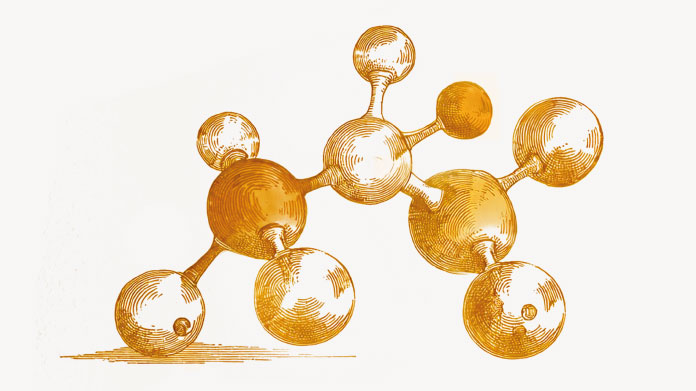
The medicinal virtues of cabbages
Did you know that the cabbage (Brassica oleracea) is a vegetable with one of the longest histories of consumption in the world? Though its first use dates back to prehistoric times, it became popular in the age of Antiquity, and traditional medicine texts show it was used for both culinary and medicinal purposes. Hippocrates, the greatest figure in ancient medicine, described the cabbage as a ‘vegetable with a thousand virtues’. The philosopher Pythagoras also enthused about its natural virtues, while Cato the Elder, a powerful politician in ancient Rome, described it as the universal remedy for all illnesses.
Cabbages’ rich nutritional value
The therapeutic benefits of cabbages are due to their high nutrient content. Cauliflower, headed cabbage, red cabbage, Brussels sprouts, Chinese cabbage, broccoli, Romanesco cabbage, kale … all varieties of cabbage provide multiple nutrients that benefit our health. In particular, they contain vitamin C and certain B group vitamins such as vitamin B9 which plays a key role in the metabolism of amino acids and the production of DNA. Some varieties also contain copper, selenium and potassium, minerals that participate in a number of physiological functions.
Source of health-protective antioxidants
Apart from being nutritionally rich, cabbages are also recognised for their antioxidant content. Several varieties contain potent natural antioxidants which are able to combat the harmful effects of oxidative stress, a process involved in premature ageing and the development of certain diseases. This is why supplementation with natural antioxidants is often recommended to prevent age-related health problems. The antioxidants found in cabbage include several that are now available as nutritional supplements, such as sulforaphane glucosinolate and quercetin.
Supports the body’s natural defences
The antioxidants in varieties of cabbage also offer beneficial effects for the body’s defence system. The sulforaphane glucosinolate in broccoli, for example, has anti-bacterial properties, while quercetin, notably present in kale, has an anti-inflammatory effect. The vitamin C in many cabbage varieties plays a key role in protecting the body by helping the immune system to function properly.
Detoxifying properties for cleansing the body
We should also mention the detoxifying and cleansing properties of cabbages. These cruciferous vegetables are indeed often recommended for detoxifying the liver and cleansing the body. As part of a detox programme, the benefits of these crucifers can be obtained from the supplement blend Cruciferous Detox Formula. The detoxifying properties of cabbages, coupled with their low calorie, high-fibre content, makes them a valuable aid in any slimming diet.
6 Days
Delivery is prompt and I never saw a…
Delivery is prompt and I never saw a quality problem with the manufacturing. It is not possible to assess efficacy on a personal basis, since too many factors come into play. Efficacy can only be assessed statistically with a sufficient number of cases.
Roger De Backer
7 Days
I collaborates with the Supersmart…
I collaborates with the Supersmart more than 10 years. Every thing is going good. Quality of the things is good. Delivery comes in time. Five stars definitely !!!
Oleksiy
7 Days
All good
Simple, frictionless site, easy ordering, good delivery updates and execution.
Chris Robbins
9 Days
I feel better
I feel better
Peter Ammann
9 Days
Prompt delivery
Prompt delivery
JAKUB Radisch
11 Days
My new go-to for top quality supplements!
I am buying more and more of my supplements from this superb, high quality company. Cannot recommend it enough. Plus, excellent customer service with a quick, helpful team and speedy deliveries. Highly recommend Supersmart!
Cecilie H.
14 Days
SUPERSMART WHAT ELSE👍
SUPERSMART WHAT ELSE👍
DIEDERLE Christophe
17 Days
Excellent quality products with…
Excellent quality products with innovative formulas, as someone who has been suffering with acid reflux, these supplements have been lifesavers.
Oriana Moniz
17 Days
high quality supplement!
high quality supplement!
GALANT
18 Days
Good service prompt delivery
Good service prompt delivery
Mrs Marcella Reeves
23 Days
I like your clear explanation
I like your clear explanation. And how to make a choice of products for a specific health problem
Ingrid
29 Days
Great product and it arrives quickly.
Great product and it arrives quickly.
SOMMARIVA Gianni
30 Days
Excellent products and fast service.
Excellent products and fast service. What do we need more?
Margarida
34 Days
The variety of products is amazing
The variety of products is amazing, the offers are good and the sending is very fast. I just miss having a bit more of guidance about combinations, possible interactions, etc.
Maria Angeles Verdu
36 Days
It was quick
It was quick.
Timo Antero





